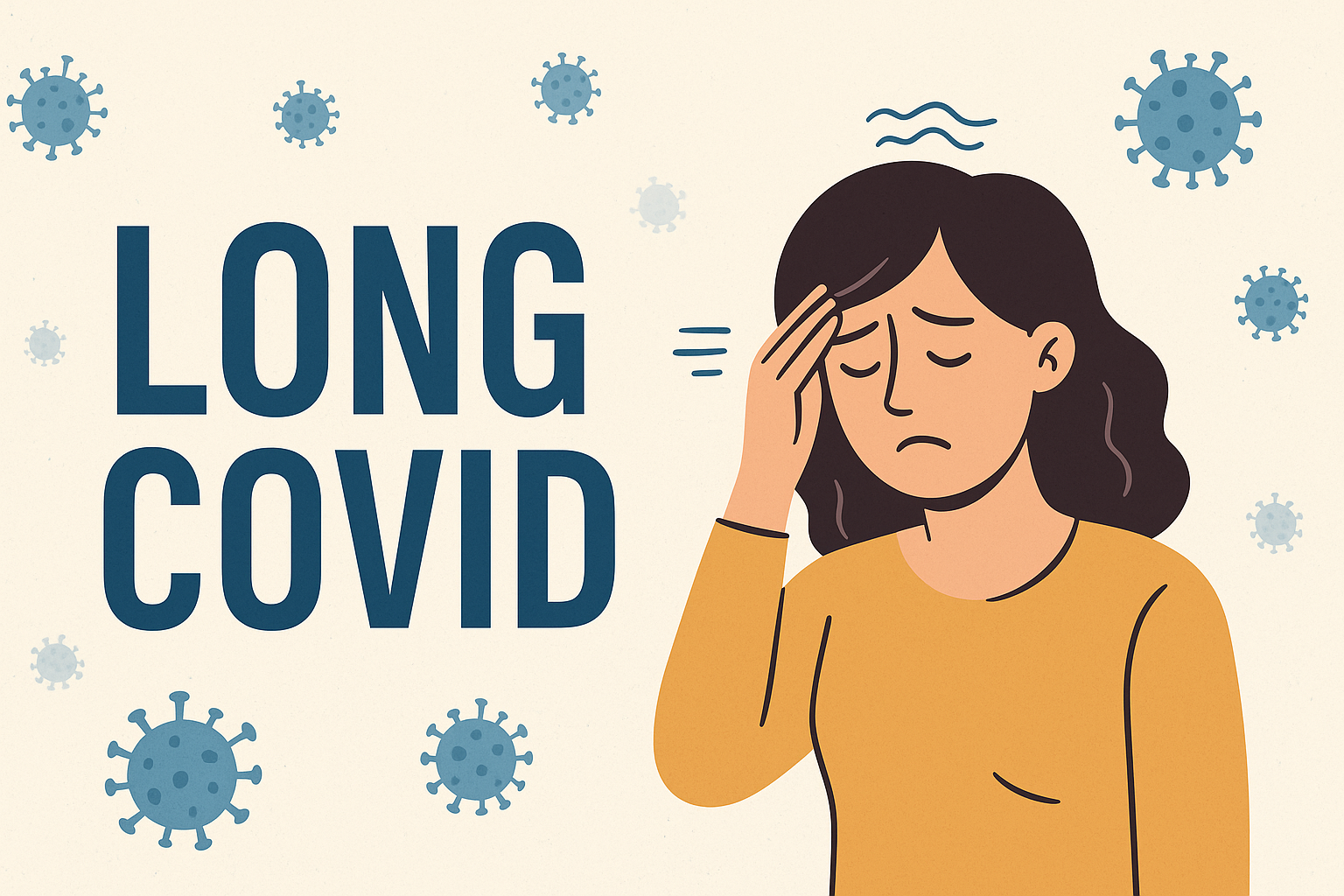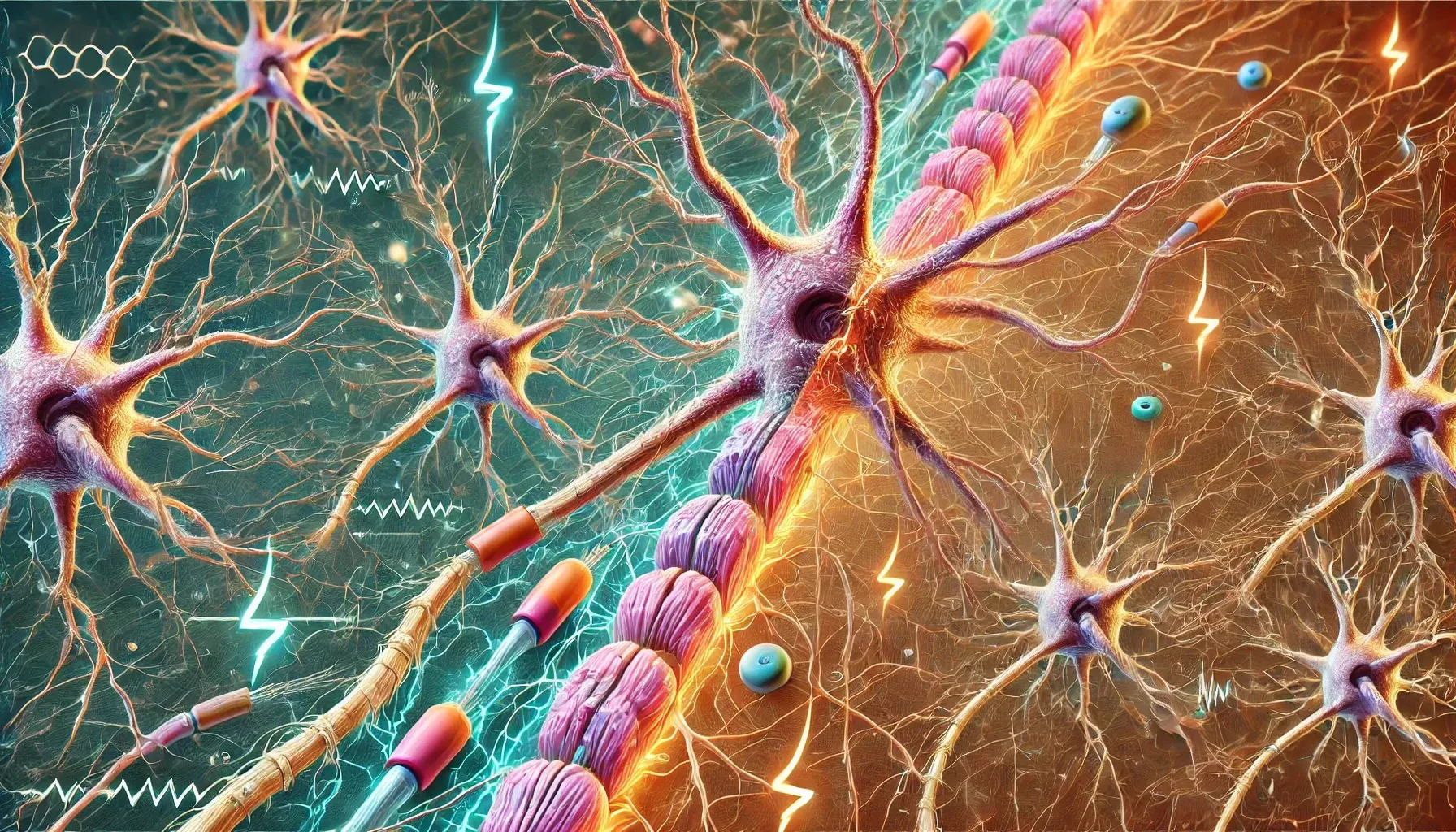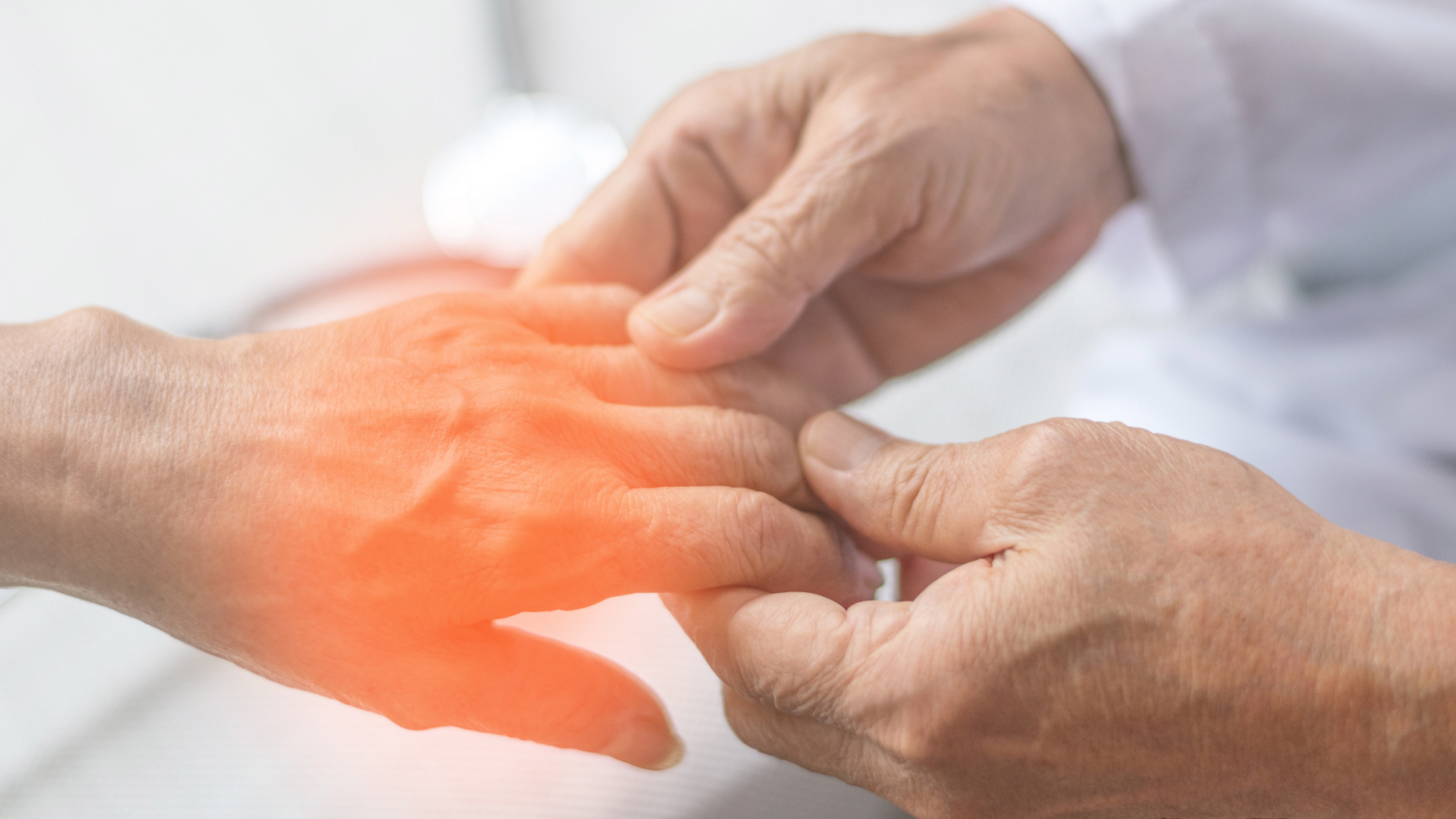The Balance Plate
January 23, 2023

The Balance Plate
Originally developed and deployed to Iraq and Afghanistan to assess concussions from blasts or other blunt trauma. This FDA-certified device was part of the Dept of Defense/NFL/NIH Concussion Program and has been adopted by several NCAA teams. This system is also used in our clinic to assess balance and working memory in the elderly to decrease their Risk of Falls.


As the world continues to navigate the aftermath of the COVID-19 pandemic, a new health challenge has emerged: Long COVID. This condition affects a significant number of individuals who have recovered from the acute phase of COVID-19 but continue to experience persistent symptoms. In this article, we delve into what Long COVID is, its symptoms, management strategies, and recovery tips.

What is Neuropathy? Neuropathy is a condition that affects the peripheral nervous system, leading to nerve damage and disrupting communication between the brain and different parts of the body. This can result in pain, numbness, tingling, or muscle weakness, most commonly in the hands and feet. Peripheral neuropathy is the most common form and can arise due to diabetes, infections, injuries, or exposure to toxins. Common Causes and Examples of Neuropathy Neuropathy can be triggered by various factors, including chronic diseases, genetic disorders, and external influences. Some of the most common causes include: Diabetes – One of the leading causes of peripheral neuropathy, often leading to nerve damage due to prolonged high blood sugar levels. Chemotherapy – Some cancer treatments can cause nerve damage, leading to chemotherapy-induced neuropathy. Autoimmune Diseases – Conditions such as lupus, rheumatoid arthritis, and Guillain-Barré syndrome can attack the nervous system. Alcoholism – Chronic alcohol abuse can cause nerve damage by depleting essential nutrients. Infections – Certain infections like Lyme disease, HIV, and shingles can contribute to nerve damage. Most Up-to-Date Neuropathy Treatments While neuropathy treatment depends on its cause, several approaches help manage symptoms and potentially support nerve regeneration: Medications Pain Relievers – Over-the-counter drugs like ibuprofen or prescription medications such as tramadol are used for neuropathy treatment. Antidepressants – Certain antidepressants, like amitriptyline and duloxetine, can help reduce nerve pain. Anticonvulsants – Medications such as gabapentin and pregabalin are commonly prescribed to manage nerve damage symptoms. Lifestyle and Alternative Therapies Physical Therapy – Helps improve muscle strength and mobility. Acupuncture – Has shown promise in relieving neuropathy symptoms by stimulating nerve function. Diet and Nutrition – Eating a balanced diet rich in vitamins B1, B6, B12, and antioxidants can support nerve regeneration. Transcutaneous Electrical Nerve Stimulation (TENS) – A non-invasive therapy that uses low-voltage electrical currents to relieve pain. Latest News and Advancements in Neuropathy Research Neuropathy treatment is constantly evolving, and researchers are actively exploring innovative solutions to promote nerve regeneration and alleviate symptoms. Some of the most promising advancements include: Stem Cell Therapy – Research indicates that stem cells may help repair nerve damage and promote nerve regeneration in patients with peripheral neuropathy. Gene Therapy – Scientists are investigating genetic modifications to enhance nerve repair and prevent further nerve damage. New Drug Developments – Emerging medications targeting nerve pain with fewer side effects are currently in clinical trials. Wearable Technology – Devices designed to stimulate nerve function and reduce neuropathy symptoms are being tested for real-world use. Regenerative Medicine – Scientists are exploring tissue engineering techniques to repair nerve injuries and restore lost function. Living with Neuropathy: Tips for Managing Daily Life Living with neuropathy can be challenging, but adopting certain strategies can improve quality of life: Exercise Regularly – Engaging in low-impact activities such as swimming, yoga, and walking can improve circulation and nerve function. Monitor Blood Sugar Levels – For individuals with diabetes, maintaining healthy blood sugar levels can slow the progression of peripheral neuropathy. Use Proper Foot Care – Inspect feet daily, wear comfortable shoes, and avoid extreme temperatures to prevent injuries. Reduce Alcohol and Quit Smoking – Both can worsen nerve damage and interfere with neuropathy treatment. Practice Stress Management – Techniques such as meditation, deep breathing, and mindfulness can help reduce pain and discomfort. Final Thoughts Neuropathy is a complex condition, but with the right neuropathy treatment and lifestyle adjustments, many people can manage their symptoms effectively. As research into nerve damage and nerve regeneration continues, new treatments are on the horizon, offering hope for better solutions in the future. If you suspect you have peripheral neuropathy, consult with a healthcare professional to explore the best options for managing your condition. By incorporating these latest advancements and practical tips, individuals affected by neuropathy can take proactive steps toward better nerve health and overall well-being. Dr. Dombroski is one of the leading specialists on helping those with neuropathy live better lives. Many people travel hundreds of miles or more to be treated by him and his clinic. If you've gone through all the normal resources and haven't found relief, give his office a call during business hours at 817-367-9289. If you want to be more familiar with Dr. Dombroski, read about him here .

What Is Peripheral Neuropathy? Peripheral neuropathy is a condition resulting from damage to the peripheral nervous system, which connects the brain and spinal cord to the rest of the body. This intricate network of nerves transmits sensory information, motor commands, and autonomic signals. When these nerves are damaged, it disrupts their communication and can cause a range of symptoms that significantly impact daily life. Common Symptoms of Peripheral Neuropathy The symptoms of peripheral neuropathy vary depending on the type of nerves affected. The three main categories of neurons are sensory, motor, and autonomic. Some common symptoms include: Sensory symptoms: Numbness or tingling (paresthesia) Burning or stabbing pain Heightened sensitivity to touch Loss of sensation, especially in the hands and feet Motor symptoms: Muscle weakness Cramps or twitching Difficulty with coordination or balance Autonomic symptoms: Abnormal blood pressure or heart rate Excessive sweating or inability to sweat Digestive issues, such as constipation or diarrhea Possible Causes of Peripheral Neuropathy Peripheral neuropathy can be caused by various factors. Some of the most common causes include: Diabetes: Diabetic neuropathy is one of the most frequent forms of peripheral neuropathy, often caused by prolonged high blood sugar levels. Infections: Conditions like Lyme disease, shingles, HIV/AIDS, and hepatitis C can damage peripheral nerves. Trauma or Injury: Physical injuries, including fractures or compression of nerves, can lead to neuropathy. Autoimmune Disorders: Conditions like lupus, rheumatoid arthritis, and Guillain-Barré syndrome may trigger neuropathy. Vitamin Deficiencies: Deficiencies in vitamins B1, B6, B12, and E can impair nerve function. Toxins: Exposure to heavy metals, certain industrial chemicals, or excessive alcohol consumption can damage nerves. Medications: Some chemotherapy drugs and certain antibiotics can cause neuropathy as a side effect. Hereditary Disorders : Genetic conditions such as Charcot-Marie-Tooth disease can result in peripheral nerve damage. Diseases Associated With Peripheral Neuropathy Peripheral neuropathy is not a standalone disease; it often occurs as a complication of other conditions. Some associated diseases include: Diabetes Chronic kidney disease Cancer (due to chemotherapy) Autoimmune diseases (e.g., lupus, Sjögren’s syndrome) Infections (e.g., HIV, Lyme disease) Hypothyroidism Medications and Vitamins for Treating Peripheral Neuropathy Medications Pain Relievers: Over-the-counter medications like acetaminophen or ibuprofen can help with mild pain. Prescription painkillers may be used for more severe cases. Antidepressants: Tricyclic antidepressants (e.g., amitriptyline) and serotonin-norepinephrine reuptake inhibitors (e.g., duloxetine) can relieve nerve pain by altering chemical levels in the brain. Anticonvulsants: Medications like gabapentin and pregabalin are effective for managing neuropathic pain by calming overactive nerve signals. Topical Treatments: Capsaicin cream or lidocaine patches can provide localized relief. Immunosuppressants: For autoimmune-related neuropathy, corticosteroids or other immunosuppressive drugs may be prescribed. Vitamins and Supplements Vitamin B12: Essential for nerve health and repair, B12 supplementation is particularly helpful for neuropathy caused by deficiencies. Vitamin B1 (Thiamine): Supports healthy nerve function and may help with neuropathy symptoms. Vitamin B6: Necessary for nerve function but should be taken in moderation to avoid toxicity. Alpha-Lipoic Acid: An antioxidant that may reduce inflammation and improve nerve function. Acetyl-L-Carnitine: Shown to reduce pain and promote nerve repair in some studies. Current Success Rates of Treatments The success of treatments for peripheral neuropathy depends on its underlying cause and severity. While some patients experience significant relief, others may only achieve partial improvement. For example: Diabetic Neuropathy: Early management of blood sugar levels and lifestyle modifications can slow progression. Medications like gabapentin and duloxetine are moderately effective in relieving pain. Chemotherapy-Induced Neuropathy: Treatments like acupuncture and physical therapy have shown promise, but complete recovery is rare. Vitamin Deficiency Neuropathy: Supplementation often leads to substantial improvement if the deficiency is addressed early. Overall, symptom management is the primary goal, as complete nerve regeneration is challenging in most cases. Emerging Treatments and Future Directions Research into peripheral neuropathy is ongoing, and promising treatments are on the horizon: Gene Therapy: Investigating the potential of gene editing to repair damaged nerves or correct genetic mutations associated with hereditary neuropathy. Stem Cell Therapy: Early studies suggest that stem cells could promote nerve regeneration and reduce inflammation. Nerve Growth Factors: Developing drugs that enhance nerve repair by stimulating growth factors. Non-Invasive Devices: Advanced devices like transcutaneous electrical nerve stimulation (TENS) and wearable neuromodulation systems are being refined for better outcomes. Targeted Biological Therapies: Research into monoclonal antibodies and small molecules offers hope for specific and effective treatments. Conclusion Peripheral neuropathy is a complex condition with a variety of causes, symptoms, and treatment options. Early diagnosis and targeted treatment can significantly improve quality of life for those affected. While current therapies focus on symptom management and addressing underlying causes, emerging treatments hold promise for more effective and long-lasting solutions. By combining advances in medical science with personalized care, the future looks brighter for individuals living with peripheral neuropathy.
